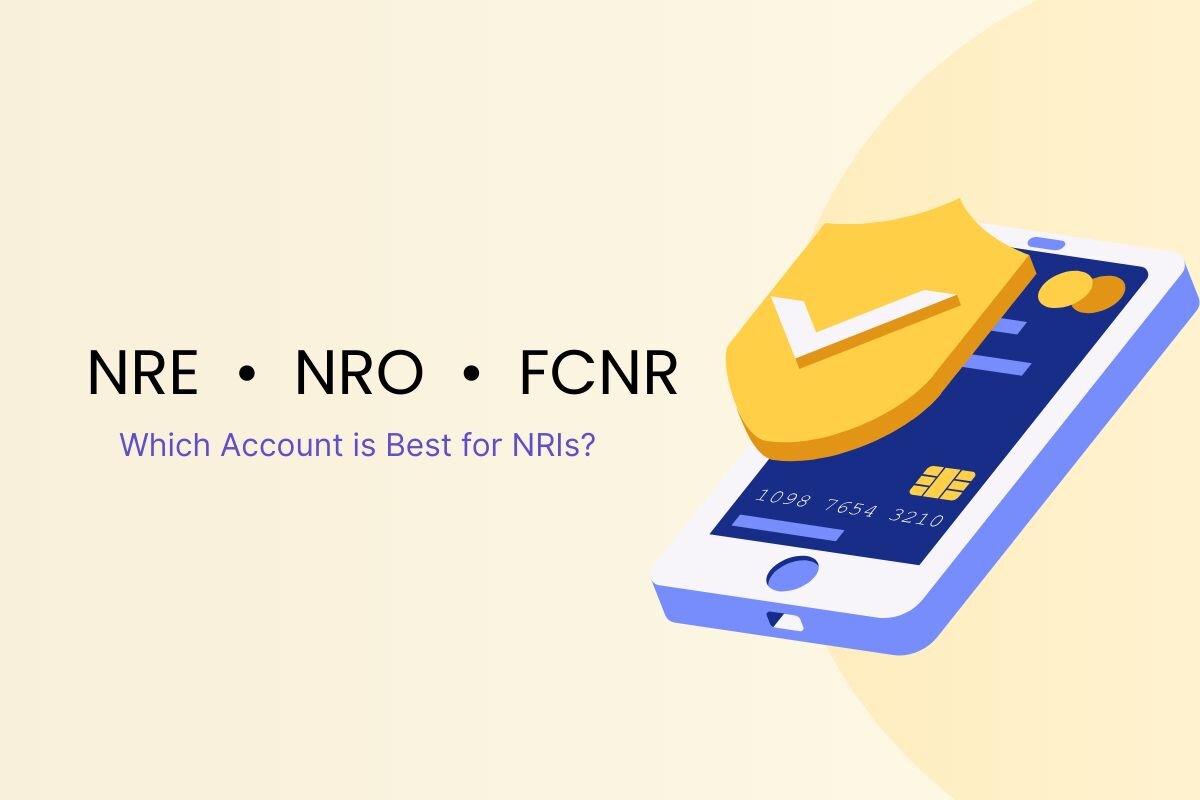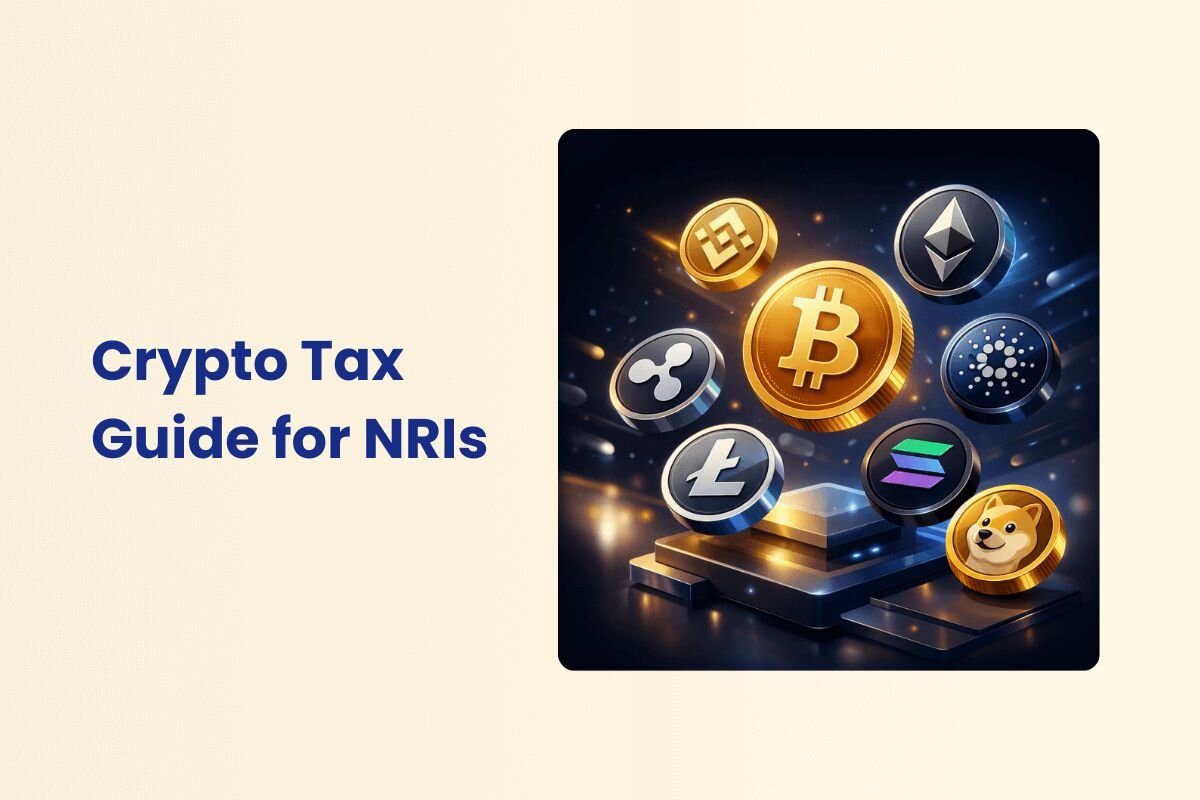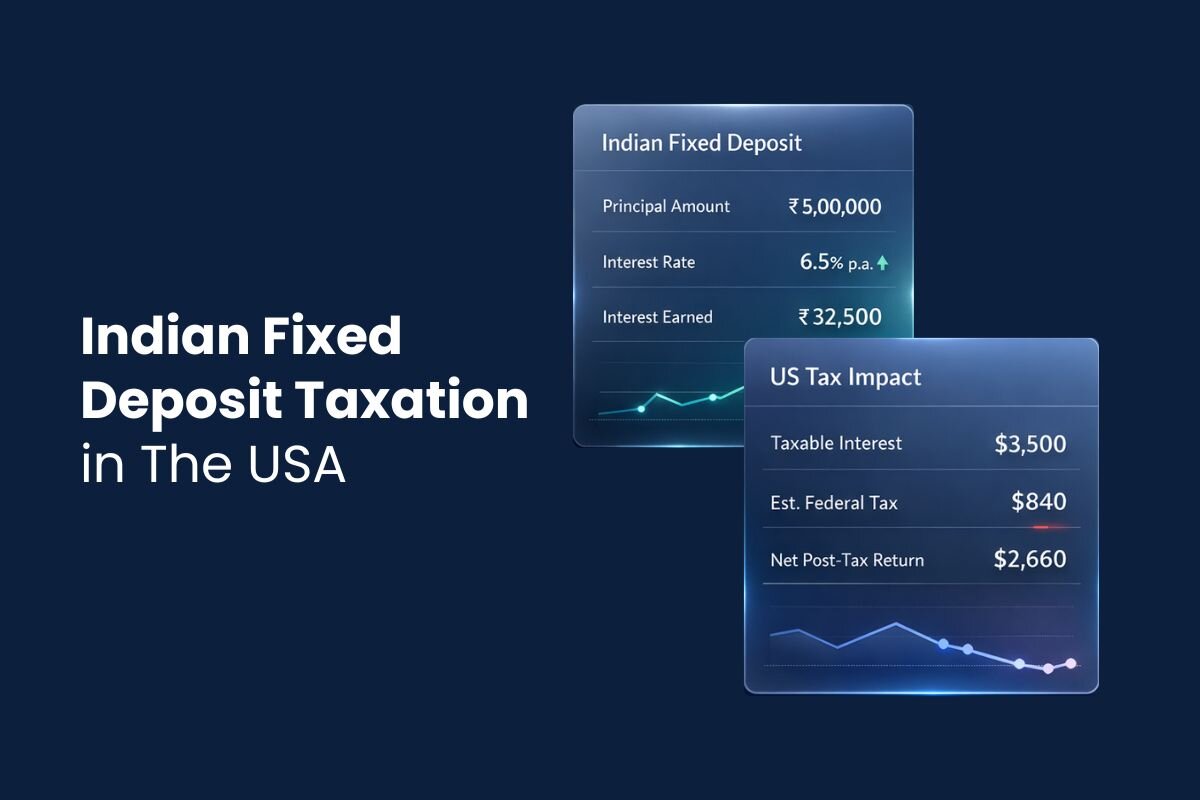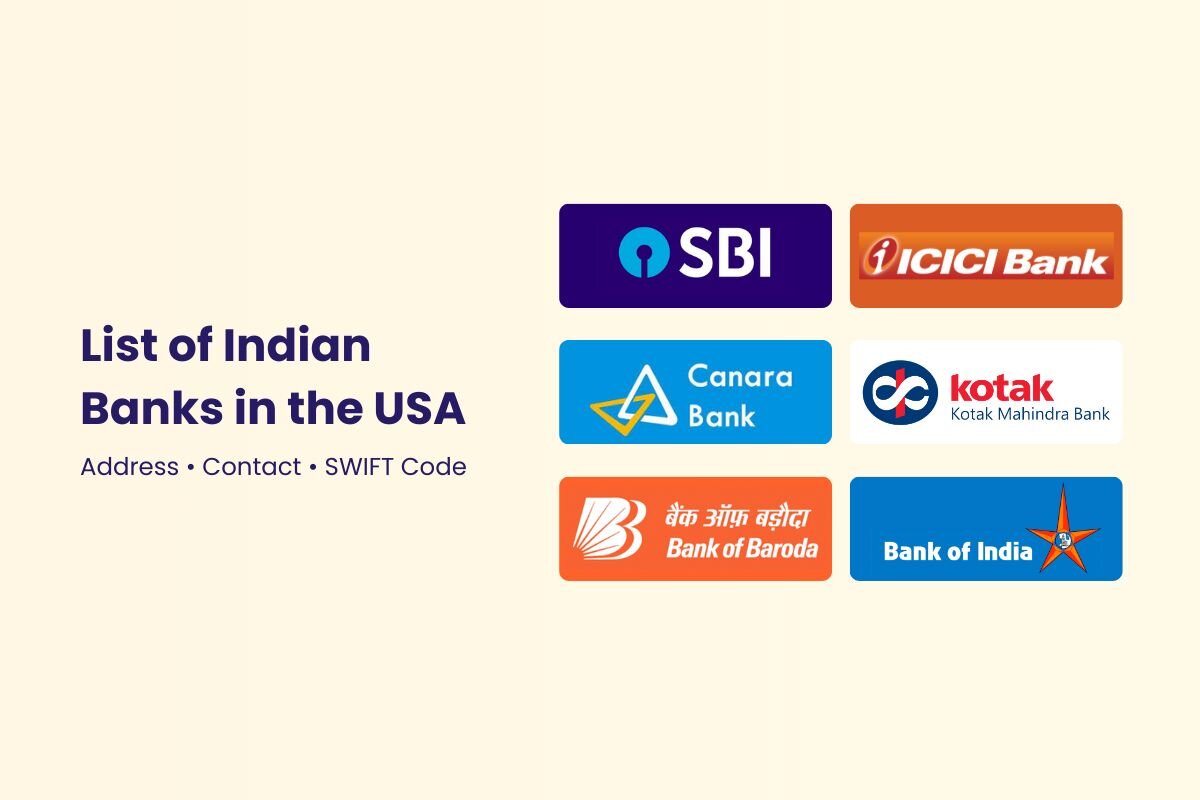You're earning overseas, receiving rental income from India, and want to protect your savings from currency swings. But which NRI account actually serves your needs?
Here's what matters: FCNR accounts let you earn up to 6% in foreign currency while NRE accounts offer tax-free interest on your overseas income. Meanwhile, NRO accounts handle your India-based earnings efficiently.
The real difference goes deeper than income sources. NRE accounts give you rupee deposits earning up to 5.50% p.a., while FCNR-B USD rates at 5.7% often beat US and UAE bank deposits. Plus, FCNR deposits come with INR 5,00,000 insurance protection and automatic renewal.
You need clarity on these three account types to build an effective banking strategy. This guide breaks down exactly which account - or combination - works best for your specific financial goals.
Key Takeaway
Here's what you'll gain from understanding these three NRI account types:
- NRE accounts work best for your foreign earnings - offering tax-free interest up to 5.50% p.a. with complete repatriation freedom. You can move money seamlessly between India and overseas without tax complications.
- NRO accounts handle your India-based income like rental payments and dividends. Interest gets taxed in India, but you can repatriate up to USD 1 million annually. Essential for managing domestic earnings you can't deposit elsewhere.
- FCNR accounts protect against currency fluctuations by maintaining deposits in foreign currencies (USD, GBP, AUD, CAD, SGD, HKD). With 1-5 year tenures, both principal and interest remain tax-free and fully repatriable.
You can open joint accounts with other NRIs across all three types. For NRE and NRO accounts, close relatives who are resident Indians can join as "Former or Survivor" holders.
These accounts unlock investment opportunities in Indian securities, shares, and mutual funds. Banks will approve loans using your NRI deposits as security.
Understanding the Purpose of Each Account
NRIs need to understand the core purpose of each NRI account to manage their finances effectively. Each account type meets specific financial needs and helps optimize banking strategy based on income sources and goals.
NRE Account: For foreign income in INR
The Non-Resident External (NRE) account lets you deposit your foreign earnings in Indian rupees. Your foreign currency converts to INR at current exchange rates when you transfer money from abroad. This account serves as your gateway to bring overseas income into the Indian financial system.
NRE accounts offer two key benefits. Your interest earnings stay completely tax-free in India. You can also transfer both your principal amount and interest earned back overseas fully repatriable without restrictions.
The account's flexibility lets you maintain it as a savings, current, fixed deposit, or recurring deposit account. NRIs who want to use their foreign income for Indian expenses or investments will find this account perfect for their needs.
NRO Account: For income earned in India
The Non-Resident Ordinary (NRO) account holds your India-generated income. This account has your rental income, dividends, pensions, property sale proceeds, and other domestic earnings.
FEMA regulations require you to convert your resident savings account to an NRO account once you become an NRI. The government taxes interest earned on NRO accounts at 30% plus applicable surcharge and cess, unlike NRE accounts.
You can freely transfer your current income like rent and dividends overseas. However, capital income such as property sale proceeds has a limit of USD 1 million per financial year across all your NRO accounts.
FCNR Account: For saving in foreign currency
The Foreign Currency Non-Resident (FCNR) account keeps your deposits in their original foreign currency. Your savings stay protected against currency fluctuations during the deposit period.
You can open FCNR accounts in several currencies including USD, GBP, EUR, AUD, CAD, and JPY. The deposit period runs between 1-5 years, which works well for medium-term financial plans.
These accounts share benefits with NRE accounts - your principal and interest stay tax-free in India and fully repatriable. The account also renews automatically at maturity, making it convenient for long-term money management.
Pros and Cons of Each Account Type
Understanding the real-world benefits and limitations of each NRI account type will help you make smart financial decisions that match your goals.
Advantages of NRE Account
- Tax-free interest on deposits in India.
- Full repatriation of principal and interest without restrictions.
- Easy way to fund Indian expenses or investments from foreign income.
- Flexible options: savings, current, FD, or recurring deposit.
- Can be jointly held with close resident relatives (Former or Survivor).
- Accepted as collateral for loans in India.
Disadvantages of NRE Account
- Exposed to INR currency fluctuations.
- Only foreign earnings allowed, not Indian income.
- Premature FD withdrawal may reduce interest.
- Limited joint holding rules (only close relatives).
- Lower effective returns if INR depreciates against your earning currency.
Advantages of NRO Account
- Designed to manage income earned in India (rent, dividends, pension).
- Allows investment in Indian securities and mutual funds.
- Can be held jointly with other NRIs or resident relatives.
- Flexibility to open as savings, current, or fixed deposit.
- Up to USD 1 million per year can be repatriated abroad.
- Eligible for loans against deposit security.
Disadvantages of NRO Account
- Interest income is taxable in India at ~30% plus surcharge and cess.
- Repatriation is capped and requires paperwork.
- Currency converted into INR, exposing deposits to INR risk.
- Some banks deduct TDS directly, reducing net returns.
- More compliance steps compared to NRE/FCNR accounts.
Advantages of FCNR Account
- Deposits remain in foreign currency, no INR conversion.
- Protection from currency depreciation risk.
- Tax-free interest in India with full repatriation.
- Available in multiple global currencies (USD, GBP, EUR, etc.).
- Tenure flexibility from 1 to 5 years.
- Automatic renewal option for convenience.
Disadvantages of FCNR Account
- Available only as term deposits, not savings/current.
- Lower interest rates compared to some INR deposits.
- Premature withdrawal before 1 year earns no interest.
- Joint holding only with other NRIs (not resident Indians).
- Limited liquidity since funds are locked for the chosen tenure.
NRE vs NRO vs FCNR: Complete Comparison
| Feature | NRE Account | NRO Account | FCNR Account |
|---|---|---|---|
| Currency Type | Indian Rupees (foreign earnings converted to INR) | Indian Rupees (India-based income only) | Foreign currency (USD, GBP, EUR, JPY, AUD, CAD, SGD, HKD) |
| Interest Rates (2024–25) | ~6.0%–6.55% p.a. | ~6.55%–7.0% p.a. | Up to ~5.7% (USD; varies by currency) |
| Tax on Interest (India) | ✅ Tax-free | ❌ Taxable — ~30.90% TDS (plus surcharge & cess) | ✅ Tax-free |
| Effective Returns (After Tax in India) | ~6.0% (no tax deduction) | ~4.9% (7% − TDS) | ~5.7% (USD; no tax in India) |
| Tax in Country of Residence | ⚠ May be taxable abroad (e.g., US, UK) | ⚠ May be taxable abroad | ⚠ May be taxable abroad |
| Repatriation | ✅ Fully repatriable (principal + interest) | ⚠ Up to USD 1M per FY after taxes & Form 15CA/CB | ✅ Fully repatriable (principal + interest) |
| Source of Funds | Foreign earnings only | India-based income (rent, dividends, pensions, property sales) | Foreign earnings only |
| Account Types Available | Savings, Current, FD, RD | Savings, Current, FD, RD | Term deposits only (1–5 years) with auto-renewal |
| Tenure Flexibility | FD can be as short as 7 days | FD can be as short as 7 days | FD only 1–5 years |
| Premature Withdrawal Rules | Allowed with reduced interest | Allowed with reduced interest | No interest if withdrawn before 1 year |
| Joint Holding | With NRIs or resident close relatives (Former or Survivor) | With NRIs or resident close relatives (Former or Survivor) | With NRIs only |
| Currency Risk | Exposed to INR fluctuations | Exposed to INR fluctuations | Protected — funds remain in original currency |
| Loan Facility | Loans/overdrafts available against deposits | Loans/overdrafts available against deposits | Loans/overdrafts available against deposits |
| Regulatory Requirement | Optional for foreign earnings | Mandatory conversion of resident savings to NRO after becoming NRI | Optional |
| Key Benefit | Tax-free earnings, easy repatriation | Manage India-based income compliantly | Protects savings from INR depreciation |
| Deposit Insurance (India) | Up to INR 5,00,000 per bank | Up to INR 5,00,000 per bank | Up to INR 5,00,000 per bank |
| Best For | NRIs with salary/income abroad | NRIs with Indian rental, dividend, or pension income | NRIs wanting to keep USD/EUR deposits safe from INR depreciation |
Which Account Should You Choose?
Your needs as an NRI should guide your choice of bank account. Let's take a closer look at some real-world scenarios that will help you decide.
Scenario 1: NRI with Foreign Salary Only
An NRE account works best when your income comes only from abroad. You can deposit foreign currency and enjoy tax-free interest with complete freedom to repatriate funds. The account helps you keep INR reserves, makes transfers easy, and offers good returns. You won't face tax issues while handling daily transactions and investments.
Scenario 2: NRI with Indian Rental Income
An NRO account becomes crucial when you need to manage rental income from Indian properties. The account lets you receive domestic earnings such as rent and dividends. Your rental income in NRO accounts counts as current income, and you can freely repatriate it within the same financial year. Direct transfers of rental payments from a resident's account to your NRE account aren't allowed.
Read about how to open NRO account
Scenario 3: NRI with Long-Term USD Savings
The FCNR account provides perfect protection if you want to safeguard foreign currency holdings against rupee fluctuations. These term deposits keep your savings in the original currency for 1-5 years. Your funds stay protected from exchange rate risks while you enjoy tax-free interest and full repatriation benefits.
Read about how to open FCNR account
Can You Open All Three Accounts?
Yes! Many NRIs successfully manage all three account types at once. Using these accounts together often creates the best strategy to handle your various income sources and needs.
Difference Between NRE NRO FCNR and RFC Accounts
A Resident Foreign Currency (RFC) account becomes an option when you return permanently to India - you can convert your FCNR or NRE balances into it. RFC account's interest gets taxed in India, unlike FCNR, though both allow full repatriation. Returning NRIs can keep their overseas earnings in foreign currency and convert to INR whenever needed.
Conclusion
Choosing between NRE, NRO, and FCNR accounts depends on where your income comes from and how you want to use it. NRE accounts are best for foreign earnings with tax-free returns and easy repatriation, NRO accounts manage your India-based income like rent or dividends, and FCNR deposits protect your savings from INR depreciation by staying in foreign currency.
In practice, the smartest approach is often a mix. For example, salary abroad + rental income in India may call for both NRE and NRO, while FCNR adds a hedge against currency risk. By matching account type with your financial goals, you can keep money flexible, compliant, and secure across borders.
Frequently Asked Questions
What are NRO and NRE accounts?
An NRE (Non-Resident External) account is used to park your overseas income in India, converted into INR. It offers tax-free interest and full repatriation. An NRO (Non-Resident Ordinary) account is meant for your India-based income such as rent, dividends, or pension, with interest being taxable in India.
Are NRO accounts taxable?
Yes. Interest earned in an NRO account is taxable in India at about 30% plus surcharge and cess. Banks deduct tax at source (TDS) before crediting the interest.
Can an NRE account receive money from India?
No, you cannot deposit Indian earnings into an NRE account. Only foreign income remitted from overseas can be credited. For Indian income, you must use an NRO account.
Can an NRO account be converted to an NRE account?
Direct conversion is not allowed. You can repatriate eligible NRO funds abroad (after taxes), and then remit them into your NRE account.
Can NRO funds be repatriated?
Yes, up to USD 1 million per financial year can be repatriated from NRO accounts, subject to payment of applicable taxes and submission of Form 15CA/CB.
Is an NRO account tax-free?
No. Unlike NRE or FCNR, the interest on an NRO account is taxable in India.
Are FCNR deposits tax-free?
Yes, both principal and interest in an FCNR (Foreign Currency Non-Resident) deposit are tax-free in India and fully repatriable. They may still be taxable in your country of residence.
Who is eligible for an FCNR deposit?
Only NRIs (Non-Resident Indians) and PIOs/OCIs (Persons of Indian Origin/Overseas Citizens of India) can open FCNR deposits. Resident Indians are not eligible.
What is the difference between NRO and FCNR?
An NRO account is in INR and is used for Indian income, with interest taxable in India. An FCNR deposit is in foreign currency, protects against INR depreciation, and its interest is tax-free in India.
Can an NRE account be maintained in foreign currency?
No. NRE accounts are always maintained in Indian Rupees. If you want to keep deposits in foreign currency, you need an FCNR account.
About the Author

By Prakash
CEO & Founder of InvestMates
Prakash is the CEO & Founder of InvestMates, a digital wealth management platform built for the global Indian community. With leadership experience at Microsoft, HCL, and Accenture across multiple countries, he witnessed firsthand challenges of managing cross-border wealth. Drawing from his expertise in engineering, product management, and business leadership, Prakash founded InvestMates to democratize financial planning and make professional wealth management accessible, affordable, and transparent for every global Indian.




